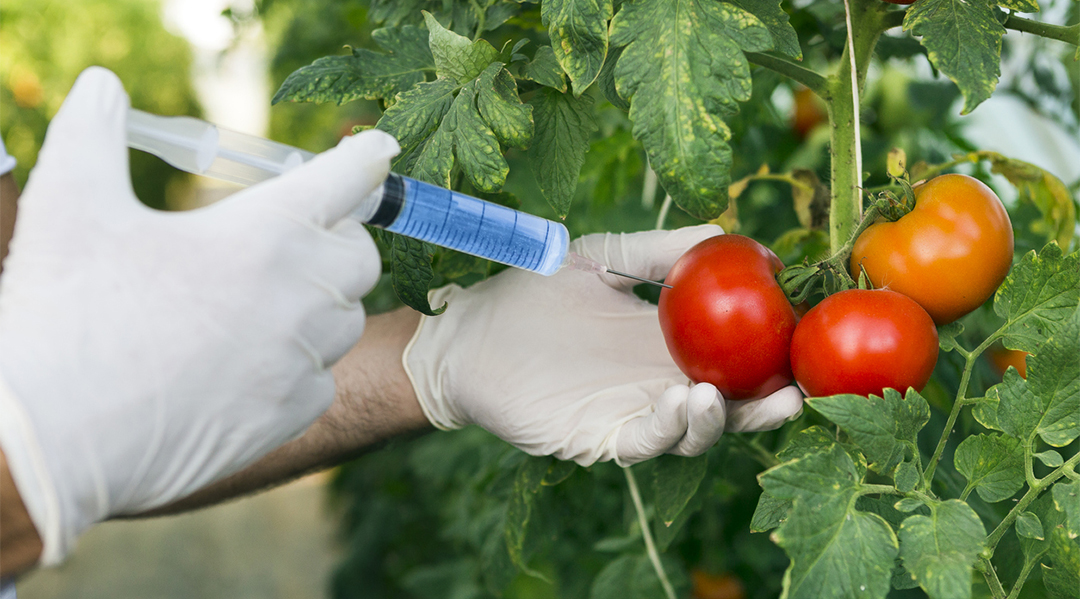MON810 Corn Event Detection Testing
The MON810 corn event is one of the most widely grown genetically modified crops globally. Developed by Monsanto (now Bayer CropScience), it was among the first commercialized GM corns, providing resistance to European corn borer, which can significantly reduce crop yield and quality. This service focuses on detecting the presence of the MON810 event in corn samples using advanced molecular biology techniques.
Our laboratory uses a combination of PCR (Polymerase Chain Reaction) and quantitative real-time PCR (qPCR) methods to identify specific gene sequences associated with the MON810 event. This approach ensures high specificity and sensitivity, making it possible to detect even trace amounts of the modified DNA in complex matrices.
The importance of this testing cannot be overstated for various stakeholders in agriculture, including seed producers, grain handlers, food processors, and regulatory bodies. Seed producers require accurate testing to ensure their products meet regulatory requirements and market demands. Grain handlers must verify that they are not inadvertently selling or purchasing genetically modified corn, which can impact both consumer preferences and international trade agreements.
Food processors need to confirm the absence of unwanted genetic modifications in raw materials used for product formulation. Regulatory bodies rely on such tests to enforce compliance with GM labeling laws and ensure public health and safety.
The MON810 event has been subject to extensive scrutiny by regulatory agencies worldwide, including the European Food Safety Authority (EFSA), which initially approved its commercial use but later imposed a moratorium due to concerns about potential environmental impacts. Consequently, accurate testing remains crucial for compliance with evolving regulations and maintaining stakeholder trust.
Our service offers several advantages over alternative detection methods. Firstly, it provides rapid results within 24-72 hours of receiving the sample, allowing quick decision-making. Secondly, our qPCR method ensures precise quantification of the MON810 event, which is essential for quality control in seed production and food processing industries.
Finally, we employ strict quality assurance protocols to ensure reliable and reproducible results. Our laboratory adheres to international standards such as ISO/IEC 17025:2017, ensuring that our testing meets the highest scientific and technical requirements.
Why It Matters
The detection of MON810 corn events is critical for maintaining market integrity and compliance with regulatory frameworks. In many regions, GM crops like MON810 are subject to strict labeling laws that require clear identification on product packaging. Failure to comply can result in legal penalties and damage to brand reputation.
For seed producers, accurate testing of their products ensures they meet customer expectations and maintain a competitive edge in the marketplace. Grain handlers face increasing pressure from consumers who prefer non-GM products or have specific dietary restrictions. By providing reliable test results, our service helps these stakeholders navigate complex regulatory landscapes and meet evolving market demands.
Food processors rely on this testing to ensure their supply chains are free from unintended GM contamination, which can affect both product safety and consumer trust. Regulatory bodies use the outcomes of such tests to enforce compliance with labeling laws and monitor public health impacts associated with GM crops.
The environmental implications of GM crops also make accurate detection essential. While some studies suggest that MON810 corn may have positive effects on crop yield, others raise concerns about potential ecological disruptions. By providing reliable test results, our service contributes to informed decision-making by stakeholders involved in agricultural practices and policy formulation.
Scope and Methodology
| Sample Type | Test Parameters |
|---|---|
| Corn kernels, flour, or processed corn products | Detection of MON810 specific gene sequences using qPCR |
| Sensitivity | Down to 0.5% contamination |
| Specificity | Highly specific to the MON810 event |
The test begins with sample preparation, which involves homogenization of corn samples and extraction of genomic DNA using standard protocols. The extracted DNA is then subjected to PCR amplification targeting the Cry1Ab gene present in the MON810 event. For quantification purposes, qPCR is employed, allowing for precise measurement of the target sequence.
The entire process adheres to international standards such as ISO/IEC 17025:2017 and specific guidelines from regulatory bodies like EFSA. Our laboratory ensures that all steps are meticulously documented and reviewed by qualified personnel to maintain the highest level of accuracy and reliability.
Why Choose This Test
High Sensitivity: Detects as little as 0.5% contamination, ensuring compliance with strict labeling laws.
Regulatory Compliance: Meets international standards and local regulations for GM crop management.
Rapid Results: Provides results within 24-72 hours, facilitating timely decision-making.
Precision Quantification: Allows for precise quantification of the MON810 event, crucial for quality control.
Expertise in Molecular Biology Techniques: Our team has extensive experience with PCR and qPCR methods.
Comprehensive Quality Assurance Protocols: Ensures reliable and reproducible results every time.
By choosing our MON810 corn event detection testing service, you can ensure that your products meet regulatory requirements, maintain market integrity, and comply with evolving industry standards. Our commitment to accuracy and reliability makes us the preferred choice for quality managers, compliance officers, R&D engineers, and procurement professionals.





